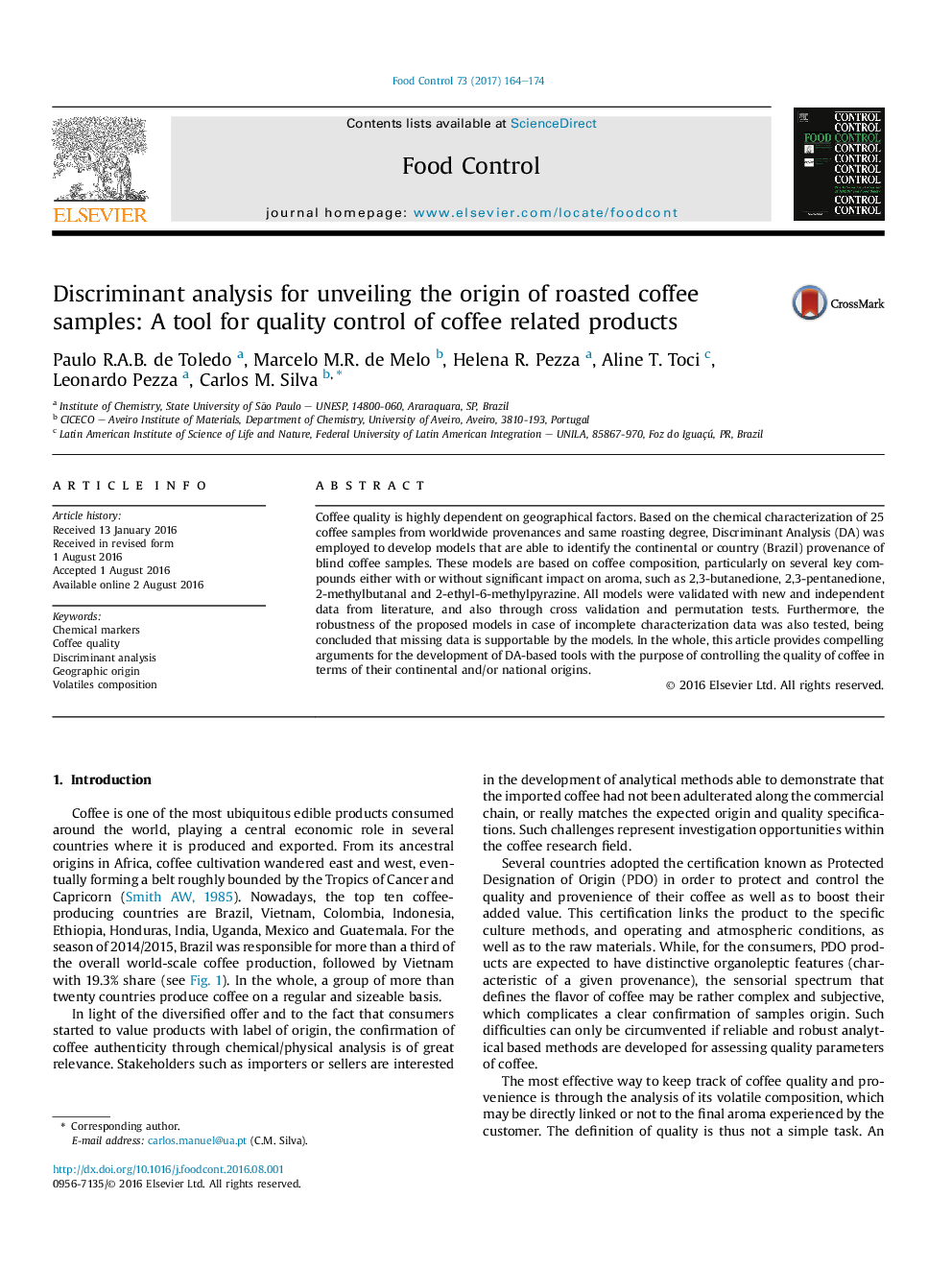| کد مقاله | کد نشریه | سال انتشار | مقاله انگلیسی | نسخه تمام متن |
|---|---|---|---|---|
| 5767627 | 1413202 | 2017 | 11 صفحه PDF | دانلود رایگان |
- Coffee authenticity through chemical analysis is of great pertinence.
- Discriminant Analysis applied to screen chemical markers for coffee origin.
- Models based up to 18 key molecules were proposed and validated.
- Models identify accurately continental or country (Brazil) provenances of coffee.
- The proposed tools are reliable to control the quality of roasted coffee.
Coffee quality is highly dependent on geographical factors. Based on the chemical characterization of 25 coffee samples from worldwide provenances and same roasting degree, Discriminant Analysis (DA) was employed to develop models that are able to identify the continental or country (Brazil) provenance of blind coffee samples. These models are based on coffee composition, particularly on several key compounds either with or without significant impact on aroma, such as 2,3-butanedione, 2,3-pentanedione, 2-methylbutanal and 2-ethyl-6-methylpyrazine. All models were validated with new and independent data from literature, and also through cross validation and permutation tests. Furthermore, the robustness of the proposed models in case of incomplete characterization data was also tested, being concluded that missing data is supportable by the models. In the whole, this article provides compelling arguments for the development of DA-based tools with the purpose of controlling the quality of coffee in terms of their continental and/or national origins.
Journal: Food Control - Volume 73, Part B, March 2017, Pages 164-174
